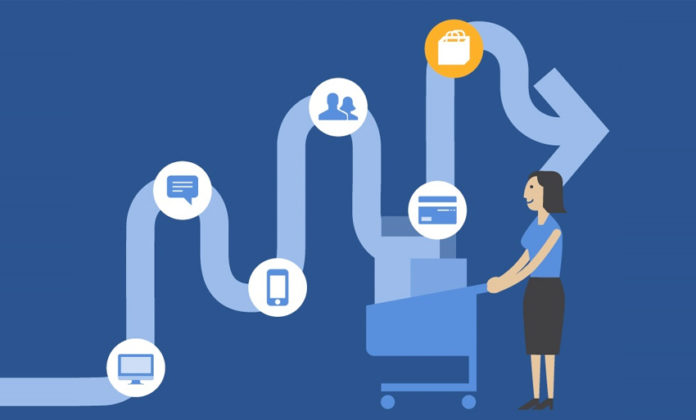An outstanding Customer Experience (CX) journey can make or break your business. With good reason, too: satisfied customers come away with a positive impression of your business and can impact its profits. While the overall CX in the US is slumping (59% of companies experienced a decline in customer satisfaction ratings), e-tailers are among the five industries that improved their CX in 2015 ( e-tailers’ ratings rose to 82 out of the ACSI’s 100-point scale last year). Additional data points to a strong correlation between high performing marketing firms and their emphasis on a personalized CX.
Despite differences in product offerings in numerous industries, key aspects of killer CX remain the same. Understanding customers’ needs is key to providing a product they want and improving upon that product. Actually utilizing the feedback provided from your customers instead of banishing it to the black hole of customer feedback forms is crucial to building a better product. Customers don’t just want the option of expressing their opinion, they want to see their ideas put into action. These foundations of great CX remain consistent no matter what industry you are in.
In addition, here are 5 companies have gone above and beyond to provide a stellar CX and what we can learn from them:
Umpqua Bank
Umpqua is an excellent example of a business that understands how to carefully personalize their customers’ in-person experience. Since starting out in 1953, the bank has never lost sight of its community centered foundations while continuously innovating to remain relevant in a digital age. Umpqua utilizes its successful CX when a customer is at the inquiry stage of their customer journey for a new bank. Umpqua also excels at the purchase point by making the process of starting an account with them hip and easy to do.
The bank’s flagship store in San Francisco makes an effort to showcase local businesses in its stores, with an immersive sensory experience that engages customers from the moment they step into the store. The store’s exterior is made of glass and is intentionally transparent to welcome the public. LCD screens outside the flagship branch feature a Twitter feed with the hashtag #umpquasf. Mobile concierges holding iPads and headphones are scattered throughout the outlet for customers’ transaction needs. Needless to say, Umpqua’s San Francisco flagship exemplifies catering to its clientele’s in-store CX.
Tellingly, Umpqua’s success with its innovative branch model is a harbinger of the changes already occurring in the retail banking sector. With over 90% of retail still occurring in physical stores, and customers expecting more personalized CX, more retailers are customizing their in-store CX. Umpqua has been successful at creating a seamless in-person CX, catering to the local community in each branch city. The bank’s efforts are clearly paying off with market research firm J.D. Power ranking the company highest in customer satisfaction in the Northwest in 2015’s Retail Banking Satisfaction Study.
iHerb
iHerb has ranked highly in empirical ratings measuring e-tailer CX and continues to wow consumers and analysts alike. iHerb predominantly focuses on natural herbal remedies and supplements among other assorted health products and has been successful at attracting consumers looking for a convenient but reliable natural remedies e-tailer– its estimated web sales in 2012 amounted to $99.5 million. Of particular note is Stellaservice’s awarding of the highest level rating of “Elite” to the company. The online ranking service praised iHerb’s quick response time and shipping policy flexibility. iHerb’s outstanding CX success comes to fruition in the purchase stage of the customer journey. The company’s success at retaining customers throughout their shopping experience to checkout is admirable.
With its origins in e-tailing, iHerb’s focus on optimizing the mobile app CX is two pronged, equal parts pragmatic and farsighted. In late 2015, the company launched both its Android and Apple apps as part of its continued response to consumers’ shopping patterns. And with good timing: 63% of adults in the U.S. used their mobile device throughout the month to search for customer support. Part of iHerb’s key selling points for the mobile app launch are streamlining the effort a consumer has to put in to find a specific product. The company’s attention to the UI of its app is based on the knowledge that consumers want flawless CX on their mobile devices, as 90% of consumers have experienced poor CX on mobile devices.
Given the shift into the digital shopping experience, iHerb’s CX strategy is likely to be a winning one. After all, ecommerce sales in the U.S. alone are expected to grow to $548 billion by 2019. Investing into a responsive mobile app that delivers on its CX is key to reaching the two-thirds of American customers already reliant on mobile devices. Coupling this with Smart Insights discovery that 80% of internet users own a smartphone and that 90% of mobile usage is contained within apps, it’s clear that iHerb is setting groundwork for the future.
Humana Inc.
Humana has come a long way from its poor ranking for its CX, moving up to a respectable 4.5 stars out of 5-star star range in the Medicare Star Quality Ratings 2015 by adopting a universal customer support knowledge base. Initially a nursing home company in the 1980s, Humana rebranded and shifted its focus to health insurance and health and wellness care. Every single one of its team members goes through training to thoroughly understand foundational and case specific strategies for their customers. Notably, Humana focuses most on the CX within the initial onset of the customer journey. By having a well trained customer support team, Humana wins over potential and existing customers by managing their clients’ expectations well.
Humana’s strategic branching into a universal training program for its staff allows its team to expertly address their customers CX issues. By reducing the complexity of understanding and purchasing insurance, Humana has smoothed out the wrinkles that previously plagued its CX reviews from displeased customers. Eliminating the administrative nightmare behind each customer’s insurance and healthcare needs has additionally allowed for a greater focus on enriching CX and standing out in the industry.
CX is seeing a shift away from role-specialization to one where all members of the CX team should be able to assist any customer is a product related question. Understanding that customers expect a consistent flow of customer support no matter what channel they are on plays a significant role in how companies like Humana evolve and innovate. Instead of the CX headache of being transferred from one line to another, Humana’s approach tackles the customer’s issue immediately without any delay or automated dial tones.
Graze
Graze wins points for having a simple website idea that is executed well. Whereas the previous companies mentioned all take great care and include bells and whistles when shaping their CX, Graze creates a wonderful CX because it’s a mostly no frills affair. The concept is targeted at office workers who simply want to “graze” on a snack or two at work for a decent price. Their policies are mentioned throughout their website embedded into concise but accurate descriptions of their product and the quality they hold themselves up to. Like iHerb, Graze’s no frills CX win focuses its attention on the crucial purchase stage in the customer journey. By embedding the information customers need to make their purchase decision within each product page, they help answer the customer’s queries immediately.
In an ecommerce subscription box service arena that is overcrowded, Graze stands out because they offer a clean website. It helps that their support team is very responsive and greatly rely on customer feedback to improve. One look at their reviews and how their representatives respond swiftly to dissatisfied customers shows how much they value a positive experience. Not only are they transparent about things ranging from their ingredient listings to their charity work, it’s also all laid out on their website in a coherent accessible manner. And the data is in their favor: a Harvard Business School study found that customer satisfaction increased by 17% when measuring transparency in a restaurant setting. As consumers are increasingly inundated with data from overstuffed websites, a simple and clean platform like Graze comes across as appealingly genuine.
Vera Bradley
Vera Bradley is a CX winner particularly because of how seamless the digital experience of shopping is on their website is. If there’s a company who “gets it”, Vera Bradley does. Most clothing and accessory e-tailers include pictures of their product. Vera Bradley goes one step beyond and includes clear snippets of video of models wearing the product and moving about so that the customer can see what the product looks like in real life. The website includes customer reviews and numerous customizable CX options while not coming across as too frazzling. There’s also a live chat option for those who have any remaining concerns about the product they want to purchase. In terms of their CX strategy in relation to their customers’ path towards checkout, Vera Bradley stands out by providing a transparent picture of what the product will look like in the customer’s hands and are ready to purchase it with no qualms.
By optimizing the omnichannel CX for their consumers, Vera Bradley has pinpointed the core of its online success. After all, companies with a comprehensive omnichannel CX retain 89% of their customers as compared to the paltry 33% for those with weak omnichannel CX. Given the influx of numerous platforms for consumers to shop as well as their expectations of a smooth cross channel CX, Vera Bradley is on the right path forward.
Ultimately, winning CX strategies differ based on industry and market. From Umpqua’s innovative in-store experience to Graze’s simple and clean website layout, different companies act upon the desire to provide stellar CX in unique ways. One thing remains certain: the stronger the overall foundations of your company’s CX, the more likely it is that customers will view your company favorably and translate that into dollars and customer loyalty for your business.




